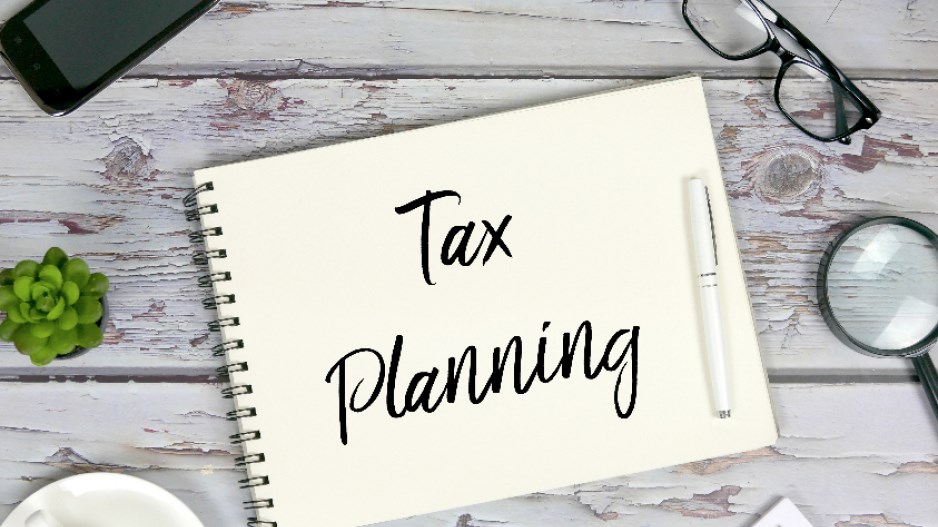When it comes to tax planning, it’s never too early to get prepared.
“As the end of the year approaches, you want to start making decisions that will impact your 2019 income tax obligations,” says Sheryne Mecklai, tax partner at Manning Elliott. “Advance planning is always beneficial, especially when it comes to taxes.”
Manning Elliott is an accounting and business advisory firm with four locations throughout the Lower Mainland and Fraser Valley. They also offer personalized tax planning services.
As 2019 winds down, Mecklai recommends these tips to reduce your income taxes.
1. Make decisions on your compensation for the year.
If you have discretion in the amount and type of compensation you can take, you may be able to use this discretion in a way to reduce your tax bill.
Mecklai recommends summarizing how much income was earned in the year and then determining if the income will utilize all the graduated rates. If not, consider drawing additional salary or receiving dividends before the end of the year.
“If you haven’t used all your graduated rates, it may make sense to take additional income this year to tax this income at one of the lower tax rates today” she says.
The taxation of salary is different from the taxation of dividends and this analysis should be considered when deciding the type of income to be received.
2. Purchase capital assets
If a business has a December year end, the business should buy capital assets and put the capital assets into use before the end of December 2019.
“If a business buys capital assets early in its fiscal year, the business will get the same income tax deduction had the business purchased the assets towards the end of its fiscal year. The business will benefit from additional cash flow by deferring the purchase to the end of the year and will receive the same tax deduction,” Mecklai says. “It’s more tax efficient to buy and use depreciable capital assets at the end of the fiscal year.”
3. Make charitable contributions by December 31
Do you have a favourite charity? Charitable donations and political contributions have significant tax benefits.
Maximizing your donations by the end of the year are not only a way to do good in your community, but also a way to save on your taxes.
“These donations need to be made by the end of December 31, 2019 in order to be claimed in the 2019 calendar year” Mecklai says.
4. Pay for medical expenses by December 31
Did you know that you can claim a tax credit for certain medical expenses incurred? Mecklai recommends paying qualifying medical expenses by the end of the year if possible to reach the threshold required to claim a tax credit in your 2019 return.
5. Make Registered Retirement Savings Plan (RRSP) contributions
RRSP contributions are another good way to receive a tax deduction with the added benefit of helping you save for retirement. While RRSP contributions made in the first 60 days of 2020 can be used as tax deductions for the 2019 year, additional planning should be undertaken for those who turn 71 in 2019.
“If a taxpayer turns 71 in 2019, they should consider making RRSP contributions before December 31st as this will be the last year to make contributions. Depending on the circumstances, there may be some future tax savings if contributions to RRSPs are over the permitted limit in the year a taxpayer turns 71” Mecklai says.
6. Offset capital gains
Lastly, Mecklai suggests calculating the capital gains realized in the year and reviewing remaining assets to see if there are any with inherent losses. These losses may offset capital gains and reduce the income tax burden.
“Let’s say you sold a stock in 2019 and have a $100,000 gain, you should review your portfolio to see if you have any other investments that, if sold, would trigger losses to offset those gains,” she says.
Unsure where to start? Working with a tax advisor can point you in the right direction and offer you advice tailored to your specific tax situation.
“The sooner you can speak with someone, the better,” Mecklai says. “Although there are some general comments, everyone should get personalized tax advice.”
In Mecklai’s experience, speaking with an advisor can shed light on issues that hadn’t been previously considered.
“When you build a relationship with your advisor, the advice becomes more personalized as they get to know you better,” Mecklai says. “It could be advice that is personal to you, your family situation, your tax pattern or even your industry.”
To learn more about Manning Elliott and the services they can offer, check out their website at www.manningelliott.com.
Fill out my online form.
Online contact and registration forms from Wufoo.




